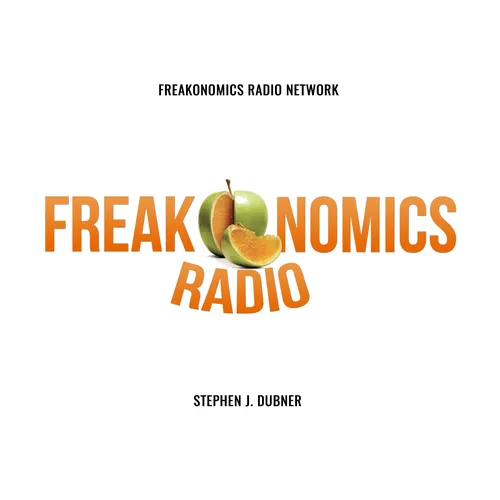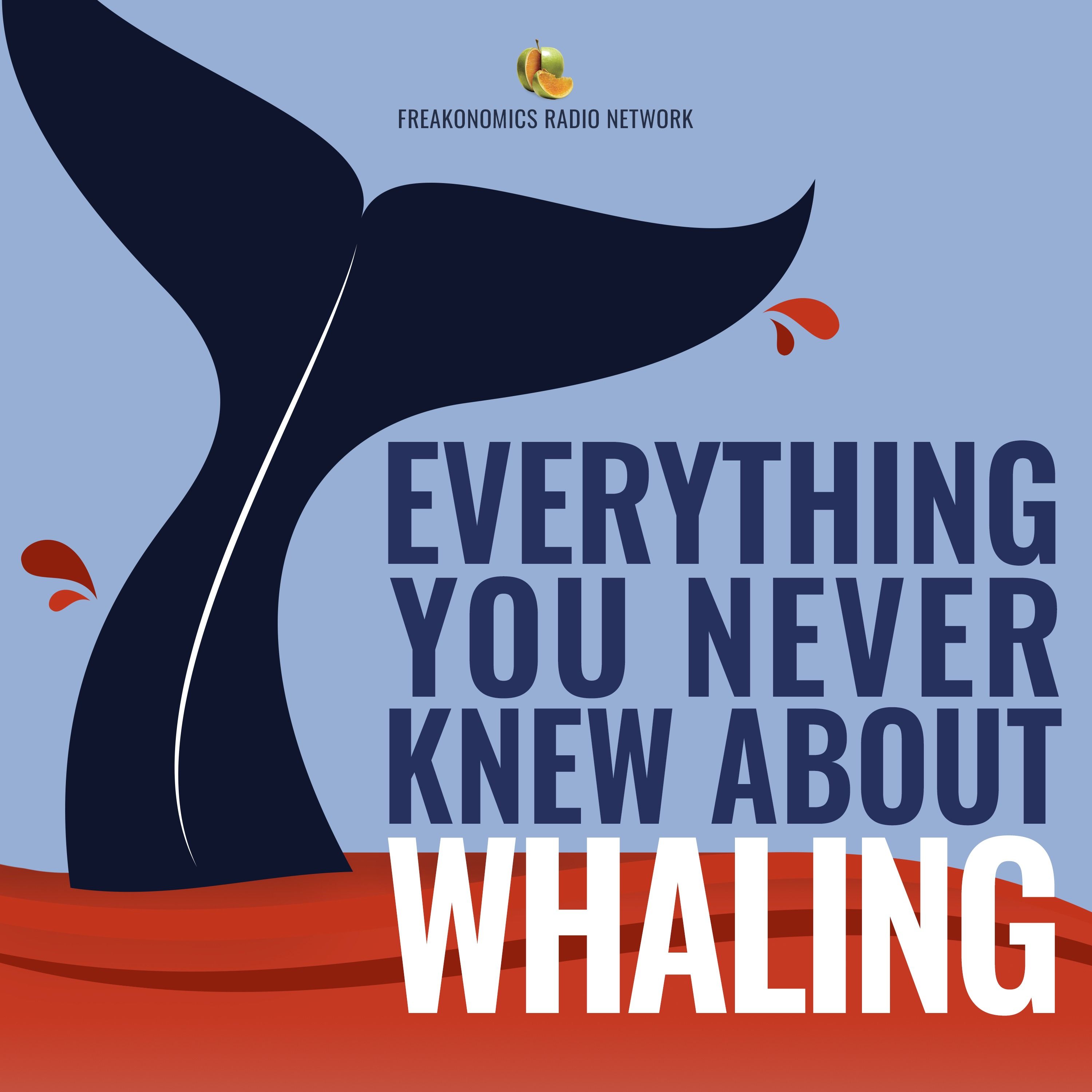
Freakonomics Radio
Freakonomics co-author Stephen J. Dubner uncovers the hidden side of everything. Why is it safer to fly in an airplane than drive a car? How do we decide whom to marry? Why is the media so full of bad news? Also: things you never knew you wanted to know about wolves, bananas, pollution, search engines, and the quirks of human behavior.
To get every show in the Freakonomics Radio Network without ads and a monthly bonus episode of Freakonomics Radio, start a free trial for SiriusXM Podcasts+ on Apple Podcasts or by visiting siriusxm.com/podcastsplus.
- Update frequency
- every 5 days
- Average duration
- 41 minutes
- Episodes
- 856
- Years Active
- 2010 - 2025

645. Is the Air Traffic Control System Broken?
Flying in the U.S. is still exceptionally safe, but the system relies on outdated tech and is under tremendous strain. Six experts tell us how it got this way and how it can (maybe) be fixed. (Part o…

644. Has America Lost Its Appetite for the Common Good?
Patrick Deneen, a political philosopher at Notre Dame, says yes. He was a Democrat for years, and has now come to be seen as an “ideological guru” of the Trump administration. But that only tells hal…

Extra: A Modern Whaler Speaks Up (Update)
Bjørn Andersen has killed hundreds of minke whales. He tells us how he does it, why he does it, and what he thinks would happen if whale-hunting ever stopped. (This bonus episode is a follow-up to ou…

What Can Whales Teach Us About Clean Energy, Workplace Harmony, and Living the Good Life? (Update)
In the final episode of our whale series, we learn about fecal plumes, shipping noise, and why Moby-Dick is still worth reading. (Part 3 of "Everything You Never Knew About Whaling.")
- SOURCES:

Why Do People Still Hunt Whales? (Update)
For years, whale oil was used as lighting fuel, industrial lubricant, and the main ingredient in (yum!) margarine. Whale meat was also on a few menus. But today, demand for whale products is at a his…

The First Great American Industry (Update)
Whaling was, in the words of one scholar, “early capitalism unleashed on the high seas.” How did the U.S. come to dominate the whale market? Why did whale hunting die out here — and continue to grow …

Why Does Tipping Still Exist? (Update)
It’s a haphazard way of paying workers, and yet it keeps expanding. With federal tax policy shifting in a pro-tip direction, we revisit an episode from 2019 to find out why.
- SOURCES:
- John List, econom…

643. Why Do Candles Still Exist?
They should have died out when the lightbulb was invented. Instead they’re a $10 billion industry. What does it mean that we still want tiny fires inside our homes?
- SOURCES:
- Tim Cooper, professor emer…

642. How to Wage Peace, According to Tony Blinken
The former secretary of state isn’t a flamethrower, but he certainly has strong opinions. In this wide-ranging conversation with Stephen Dubner, he gives them all: on Israel, Gaza, China, Iran, Russi…

Why Does One Tiny State Set the Rules for Everyone? (Update)
Until recently, Delaware was almost universally agreed to be the best place for companies to incorporate. Now, with Elon Musk leading a corporate stampede out of the First State, we revisit an episod…

641. What Does It Cost to Lead a Creative Life?
For years, the playwright David Adjmi was considered “polarizing and difficult.” But creating Stereophonic seems to have healed him. Stephen Dubner gets the story — and sorts out what Adjmi has in co…

640. Why Governments Are Betting Big on Sports
The Gulf States and China are spending billions to build stadiums and buy up teams — but what are they really buying? And can an entrepreneur from Cincinnati make his own billions by bringing basebal…

How to Make Your Own Luck (Update)
Before she decided to become a poker pro, Maria Konnikova didn’t know how many cards are in a deck. But she did have a Ph.D. in psychology, a brilliant coach, and a burning desire to know whether lif…

639. “This Country Kicks My Ass All the Time”
Cory Booker on the politics of fear, the politics of hope, and how to split the difference.
- SOURCES:
- Cory Booker, senior United States Senator from New Jersey.
- RESOURCES:

638. Are You Ready for the Elder Swell?
In the U.S., there will soon be more people over 65 than there are under 18 — and it’s not just lifespan that’s improving, it’s “healthspan” too. Unfortunately, the American approach to aging is stuc…

What Do Medieval Nuns and Bo Jackson Have in Common? (Update)
In this episode from 2013, we look at whether spite pays — and if it even exists.
- SOURCES:
- Benedikt Herrmann, research officer at the European Commission.
- Steve Levitt, co-author of Freakonomics and ho…

637. What It’s Like to Be Middle-Aged (in the Middle Ages)
The simplicity of life back then is appealing today, as long as you don’t mind Church hegemony, the occasional plague, trial by gossip — and the lack of ibuprofen. (Part two of a three-part series, “…

636. Why Aren’t We Having More Babies?
For decades, the great fear was overpopulation. Now it’s the opposite. How did this happen — and what’s being done about it? (Part one of a three-part series, “Cradle to Grave.”)
- SOURCES:

An Economics Lesson from a Talking Pencil (Update)
A famous essay argues that “not a single person on the face of this earth” knows how to make a pencil. How true is that? In this 2016 episode, we looked at what pencil-making can teach us about glob…

635. Can a Museum Be the Conscience of a Nation?
Nicholas Cullinan, the new director of the British Museum, seems to think so. “I'm not afraid of the past,” he says — which means talking about looted objects, the basement storerooms, and the leakin…